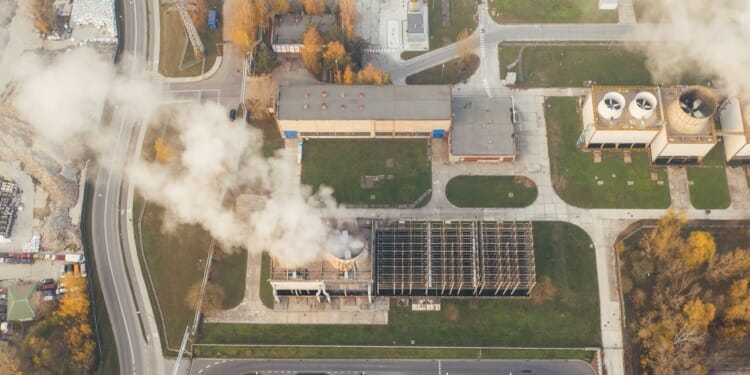University of Cincinnati (UC) engineers are exploring different methods of transforming greenhouse gases into fuel, in an effort to tackle the climate issue and to support the departure of astronauts from Mars.
The study, which was published on September 6th, in the Nature Communications journal, included contributors from Shanghai University, Rice University and East China University of Science and Technology.
Assistant professor at UC College of Engineering and Applied Science, Jingjie Wu, as well as his students used a “carbon catalyst in a reactor” in order to complete the conversion of carbon dioxide to methane.
But Wu says the atmosphere of Mars is largely made up of carbon dioxide, noting that astronauts could sustain 50% of the necessary fuel to return home, by creating what is needed on Mars. Wu said: “It’s like a gas station on Mars. You could easily pump carbon dioxide through this reactor and produce methane for a rocket.”
Wu has been studying “carbon dioxide conversion” for roughly 10 years and added: “I realized that greenhouse gases were going to be a big issue in society. A lot of countries realized that carbon dioxide is a big issue for the sustainable development of our society. That’s why I think we need to achieve carbon neutrality.”
Related Articles: A Novel Way To Cut Greenhouse Gas Emissions: Train Cows to Use the Toilet | America’s New Policies to Control Carbon Emissions
Carbon dioxide is also harmful to human life and the environment. As reported by National Geographic, the emissions from greenhouse gases have a broad impact on health as well as the state of the environment. Rising emissions lead to climate change, due to the fact that they confine heat, and ultimately cause “respiratory disease from smog and air pollution.” Greenhouse gases also cause extreme weather events and troubles in food stocks.
The assistant professor and his colleagues also continue to study the role of chemical reactions. The study’s leading author and UC doctoral candidate, Tianyu Zhang, as well as Wu and his students, are testing out various catalysts – these are substances that jumpstart chemical reactions, raising their levels without experiencing any change themselves.
The catalysts include “graphene quantum dots,” which are layers of carbon (merely nanometres in size) that heighten the “yield of methane.” Wu’s students are also using catalysts to create ethylene, a chemical used to make rubber, plastic, and synthetic clothing.
The development of obtaining fuel production from carbon dioxide has also made Wu more hopeful about the prospect of humans landing on Mars, during his life. Wu noted: “Right now if you want to come back from Mars, you would need to bring twice as much fuel, which is very heavy. And in the future, you’ll need other fuels. So we can produce methanol from carbon dioxide and use them to produce other downstream materials. Then maybe one day we could live on Mars.”
But according to Astronomy magazine, the process of a human landing on Mars is a challenging one. Astronomy reports that Mars is not likely to be a welcoming planet: the surface is too cold to sustain human life, and the planet’s gravity is a mere 38% of Earth’s. This means that moving about may prove to be a challenge as we are used to much greater pressure from gravity. Plus, the atmosphere on Mars is equivalent to about 1% of the Earth’s atmosphere at sea level, meaning that it’s not enough to breathe.
Whilst humans have yet to land on planet Mars, one may wonder whether it is a viable goal for the future of mankind. However, the University of Cincinnati’s study does offer a glimpse of how it might be accomplished based on Wu’s research. One may well also wonder what other application(s) this research might lead to – other than going and coming back from Mars.
Editor’s Note: The opinions expressed here by Impakter.com columnists are their own, not those of Impakter.com.— In the Featured Photo: Greenhouse gas emissions. Featured Photo Credit: Marcin Jozwiak.










